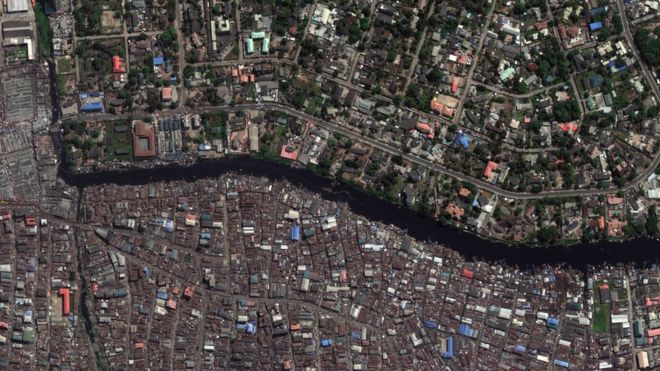 DIGITALGLOBE
DIGITALGLOBE
Nigeria is Africa's largest economy and the continent's biggest oil producer.
But it is a country where more than half the population lives in poverty, and 60% of the urban population cannot afford the cheapest house.
There are also some very rich Nigerians indeed and the gap between rich and poor is all too clear to see in the country's largest cities.
Ahead of Nigeria's elections on 16 February, BBC Reality Check examines whether the poor are getting poorer and if the wealth gap is getting wider.
Competing claims
The government argues that it has combated poverty and blames past governments for mismanaging the oil industry and the economy.
"It is not that poverty has reduced considerably, no. I am saying that what has happened now is that we are dealing with the issue of poverty," said Vice-President Prof Yemi Osinbajo.
Prof Osinbajo is the running mate for incumbent president, Muhammadu Buhari.
Mr Buhari's principal opponent in the election, Atiku Abubakar, says Nigeria's economy has never been in a worse state than it is now.
"The most important question in this election is: are you better off than you were four years ago, are you richer or poorer?"
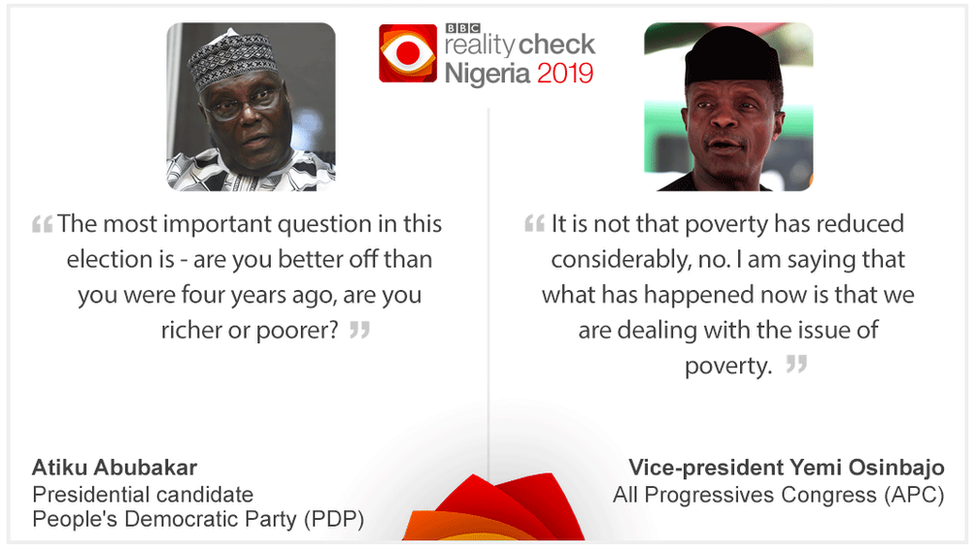
An economy in trouble
The Nigerian economy has only recently shown signs of recovery after a period of recession that ended in 2017.
The unemployment rate provided by the government's National Bureau of Statistics is more than 20%.
Here's another key statistic - about 60% of the population lives in absolute poverty - measured by the number who can afford only the bare essentials of shelter, food and clothing.
This figure is from a household poverty survey released by the government in 2012.

There is a frustrating lack of more recent data available, although a revised poverty survey is currently under way.
However, experts see little sign that the situation for the poorest has improved significantly.
"With increase in population and continuing lack of jobs, it is evident that the gulf between the haves and the have nots will continue to widen in the future," said Bongo Adi, an economist at the Lagos Business School.
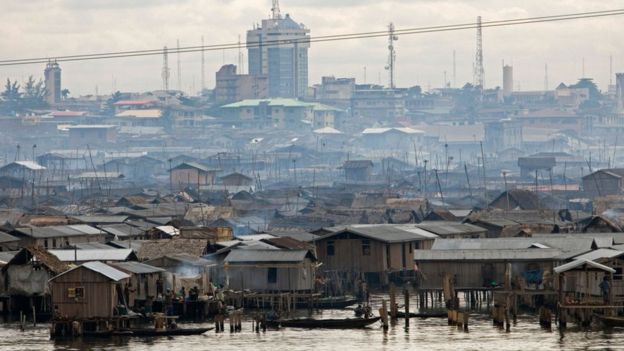 ALAMY STOCK PHOTO
ALAMY STOCK PHOTOPoverty is 'staring us in the face'
There's certainly a widespread perception that inequality is getting worse.
"Nigeria has a long history of mismanagement, corruption and disregard for due process" that has contributed to the high number of people living in poverty, says Abdulazeez Musa, Oxfam's Nigeria-based analyst.
As for the gap between rich and poor, Nigerian economist Bismarck Rewane estimates that only 5% of the population controls roughly about 40% of Nigeria's wealth.
Poverty-reduction policies do exist, he says, but they are not backed up by the political will or the good governance to implement them.
"Vested interest is far in excess of national interest," he says.
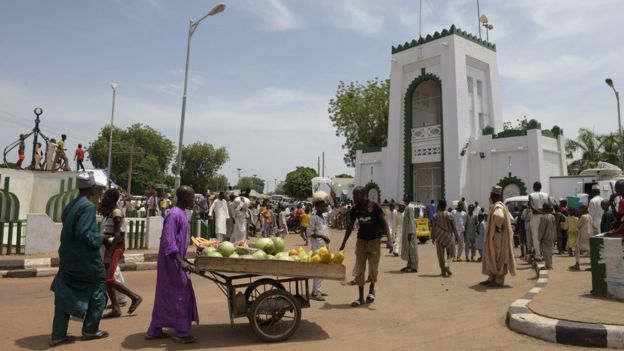 AFP
AFP
Poverty rates are higher in northern states than they are in parts of the south.
Sokoto State in the far north-west of the country has the highest level of poverty at 81% while the figure for the south-western state of Lagos is 34%.
A widely used measure of inequality that rates the distribution of income in a society is known as the Gini scale - for which the higher the number, the greater the inequality.
Nigeria's rate rose 15% between 2004 and 2010, the latest year for which the data is available.
Poverty is "staring us in the face", says Omolara Adesanya, a candidate for governor of Lagos state.

More about Nigeria's elections:
- Nigeria's 'new broom' president seeks clean sweep
- The 'money-maker' challenging Buhari
- How ‘godfathers’ influence politics
- Full coverage: Nigeria's 2019 vote

Housing as a measure of poverty
About half of Nigeria's population lives in cities, but the divide between the poor and the rich has created a paradox - many newly built houses in the wealthier areas of Lagos are empty, while overcrowding is a major issue in many poorer areas.
The UN estimates that 69% of urban residents in the country live in slum conditions, with the housing shortfall of close to 18 million units.
Building or buying a house is expensive. To construct a three-bedroom house costs $50,000 (£38,500) compared with $36,000 in South Africa and $26,000 in India, according to the World Bank.
The Centre for Affordable Housing Finance in Africa says a standard three-bedroom, middle-income apartment in urban locations in Nigeria currently costs $5,000 a year to rent or $100,000 to buy.
Only about 40% of urban households can afford the cheapest newly-built house ($16,351).
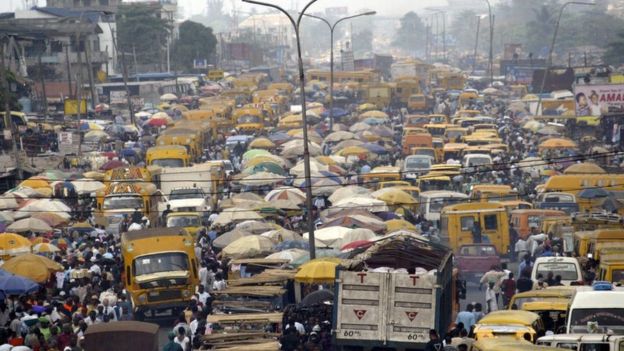 AFP
AFPPoverty or inequality?
Although there is a general recognition that Nigeria is highly unequal, it is hard to quantify inequality because of the lack of up-to-date data, says economist Zuhumnan Dapel.
But there is a wider point about the study of inequality, he says. Those in developing economies care less about income inequality than they do about living in poverty.
"Whether their people are living below the poverty line., the main aim is getting people out of poverty," he says.
And this is where Nigeria faces its greatest challenge.
According to the World Bank, Nigeria is now the country with the most poor people in the world, overtaking India.
The Bank is is cautious over the reliability of the data, but it does suggest the immense scale of the problem the country is facing - whoever wins the forthcoming elections.



Africa
Fatal stampede at Nigeria election rally
- 13 February 2019
- Africa
Missing Kenyan activist found dead
- 12 February 2019
- Africa
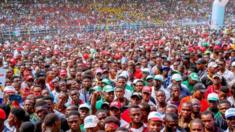
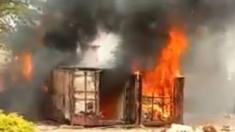
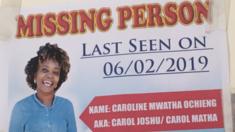
No comments:
Post a Comment